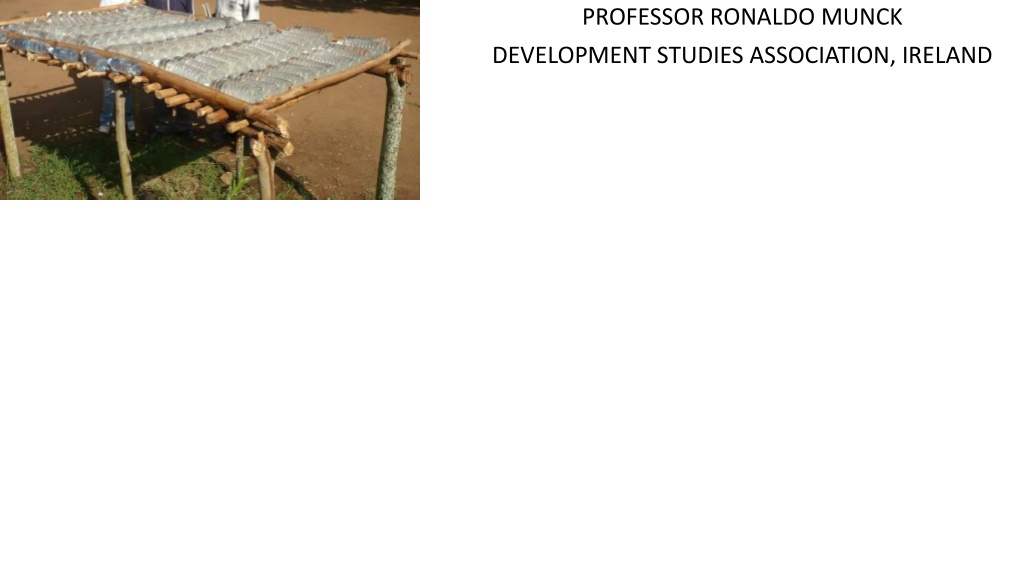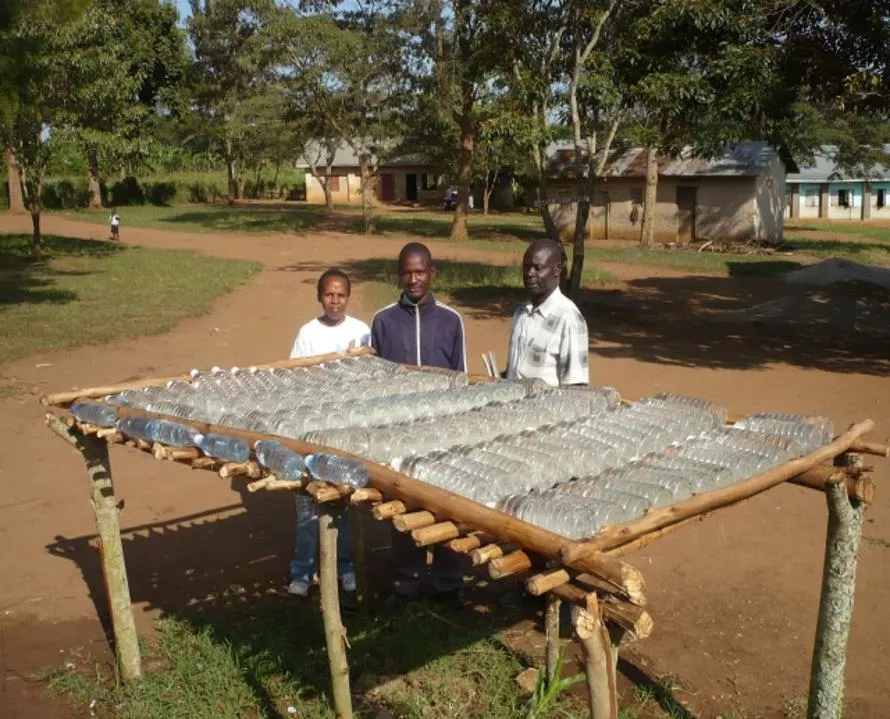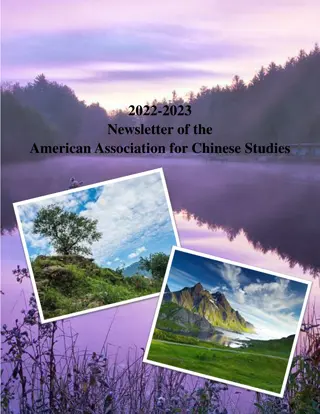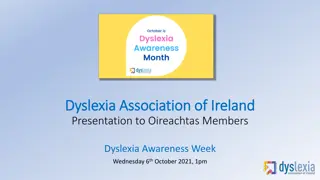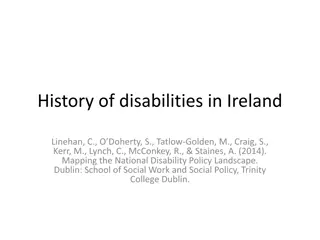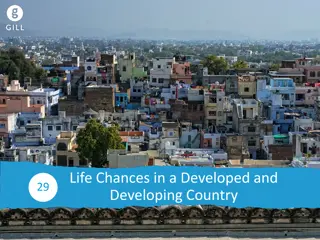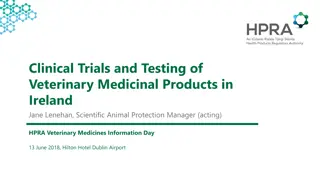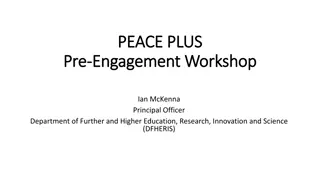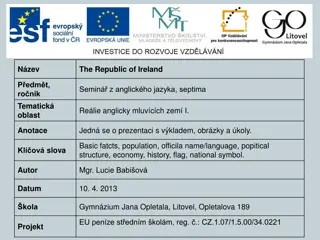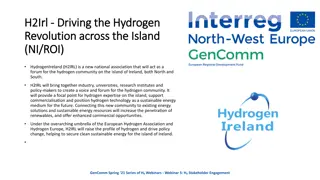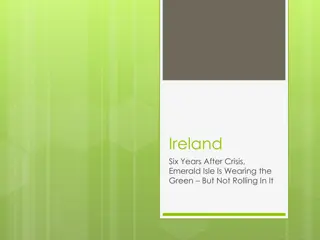Professor Ronaldo Munck Development Studies Association in Ireland
Professor Ronaldo Munck is involved with the Development Studies Association in Ireland. This organization focuses on promoting research and education in the field of development studies. Through various initiatives and programs, the association aims to contribute to the understanding and advancement of development issues globally. Professor Munck's work and involvement with the association play a significant role in shaping the discourse and practice of development studies in Ireland and beyond.
Download Presentation

Please find below an Image/Link to download the presentation.
The content on the website is provided AS IS for your information and personal use only. It may not be sold, licensed, or shared on other websites without obtaining consent from the author. Download presentation by click this link. If you encounter any issues during the download, it is possible that the publisher has removed the file from their server.
E N D
Presentation Transcript
PROFESSOR RONALDO MUNCK DEVELOPMENT STUDIES ASSOCIATION, IRELAND
ISSUES TIPPING POINT As a sector in world affairs, water is reaching a tipping point. Over the next two decades, the global push for food and energy security and for sustaining urbanization will place unprecedented demands on water World Bank KNOCK ON EFFECTS Water is at the core of sustainable development and is critical for socio- economic development, healthy ecosystems and for human survival itself. It is vital for reducing the global burden of disease and improving the health, welfare and productivity of populations. Water is also at the heart of adaptation to climate change, serving as the crucial link between the climate system, human society and the environment UN Water
GENDER In most societies, women have primary responsibility for management of household water supply, sanitation and health. Because of their dependence on water resources, women have accumulated considerable knowledge about water resources, including location, quality and storage methods. However, efforts geared towards improving the management of the world s finite water resources and extending access to safe drinking water and adequate sanitation, often overlook the central role of women in water management UN Women GOVERNANCE First, building and fixing pipes isn't enough. Efforts must concentrate on fixing the institutions that fix the pipes and their governance structures in order to make universal and sustainable access to water and sanitation services a reality World Bank
PERSPECTIVES DEVELOPMENTALISM Developmentalism a one-way path towards modernity that all countries must travel guided by the compass of science and enlightenment values * The dominant focus in regard to both water and Africa is deeply imbued with a myopic vision of a Western science which would banish both underdevelopment and thirst. In relation to Africa the colonialist imagination still rides high: joining the world economy" will lead to development and well-meaning Western NGOs will explain the importance of clean water. In relation to water, the quite recent colonial heritage of water distribution and control is ignored and replaced by a simple gap in knowledge and understanding to be filled by Northern science, the World Bank and the international NGO's. MARKET MIRACLES The turn towards the commodification and destatization of water was codified in the 1992 Dublin Principles resulting from an influential gathering of water professionals and policy-makers. These principles were designed to learn from the lessons of the Water Decade (1980s) and to chart a way forward for water provision. Water scarcity was an over-riding theme as was also the economic value of water. The term 'demand responsiveness meant more than just funding people and communities which demanded water but also who were able or willing to pay for it. This would clearly impact most severely in rural areas where infrastructure was weak or non-existent. The principle was that water has an economic value (or one that can be generated) and that competing users (say between commercial farmers and the poor) should be subject to market supply and demand forces. While destatization could mean a return to traditional community control, in practice it mainly led to privatization and the hard-headed logic of 'cost recovery'.
INTEGRATED WATER RESOURCE MANAGEMENT "the rise of IWRM (Integrated Water Resource Management) to the center of global water management is nothing short of remarkable (Larry Swatuk). It was shaped and promoted widely as a normative blueprint for sustainable water management by a coalition of international development policy actors. It was very much part of the new global governance paradigm, designed to compensate for the effects of raw tooth and nail free- market fundamentalism. Global water governance sought to promote the coordination of water resources in a more equitable and ecologically sustainable manner, while keeping much of the pro-market impetus alive. It saw a shift from the 'hardware' approach of the modernization era (dams and other large-scale projects) to one which emphasized 'software' by that meaning the social dimension which included community, gender and governance as key factors.
RESULTS MDG target to halve the proportion without sustainable access to safe water access between 1990 and 2015 deemed achieved with 2 billion people gaining access But still 1 billion lack access and sanitation well off target with 2.5 billion without access Unequal access persists: eg Sierra Leone has urban with full access but only 10% rural population with access
Data from 35 countries in Africa on coverage for drinking water by wealth quintiles and urban and rural residence, based on population-weighted averages. Access to the most basic, and each successive higher level of service, is found to be inversely proportional to wealth. Inequality appears socially entrenched. At one extreme, 94% of the richest quintile in urban areas use improved water sources, and over 62% have piped water on their premises. At the other extreme, 61% of the poorest quintile in urban areas use improved water and 5% have piped water on their premises. In rural areas, piped water is non-existent in the poorest 40% of households (the first two quintiles), and less than half of the population have access to any form of improved source of water.
FUTURES WE MUST DO BETTER? MORE OF THE SAME NO GOOD SDG GOAL 6: ENSURE AVAILABILITY AND SUSTAINABLE MANAGEMENT OF WATER AND SANITATION OF ALL ENCOURAGE LOCAL INVOLVEMENT IN WATER MANAGEMENT HOW? GOAL 10: REDUCE INEQUALITY WITHIN AND AMONG COUNTRIES YES BUT HOW? WHAT ABOUT 1974 NEW INTERNATIONAL ECONOMIC ORDER: BACK TO THE FUTURE?
QUESTIONS WHERE HAS POWER GONE? WHAT ABOUT THE MARKET? THE TRANSNATIONAL CORPORATIONS? THE DEVELOPMENTAL STATE GENDER INEQUITIES? AUTHORITARIANISM VERSUS GOOD GOVERNANCE? ADDRESSING HISTORICAL AND STRUCTURAL INEQUITIES BRING POLITICS BACK IN
